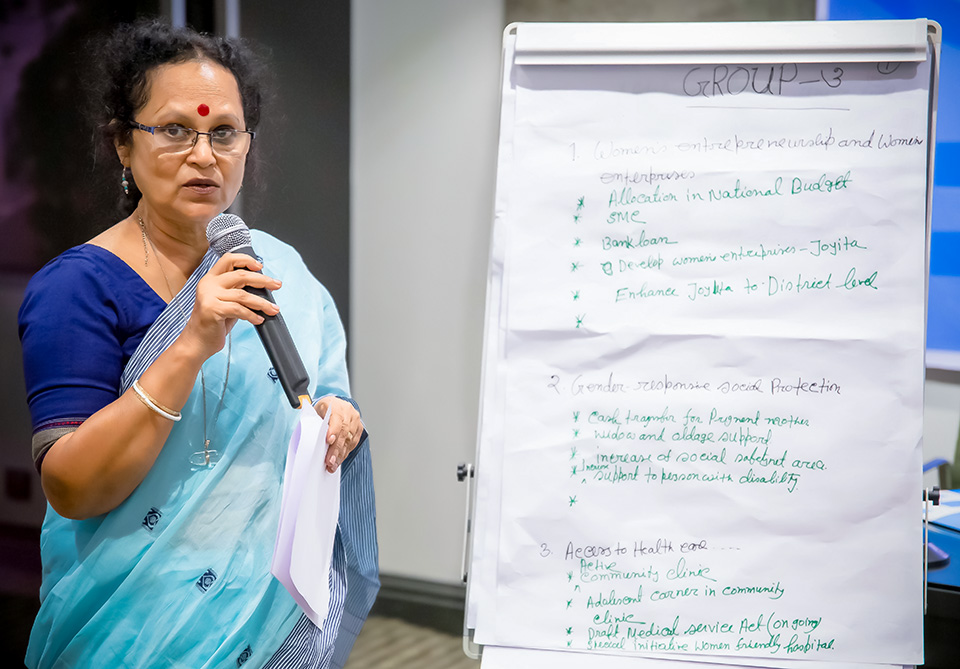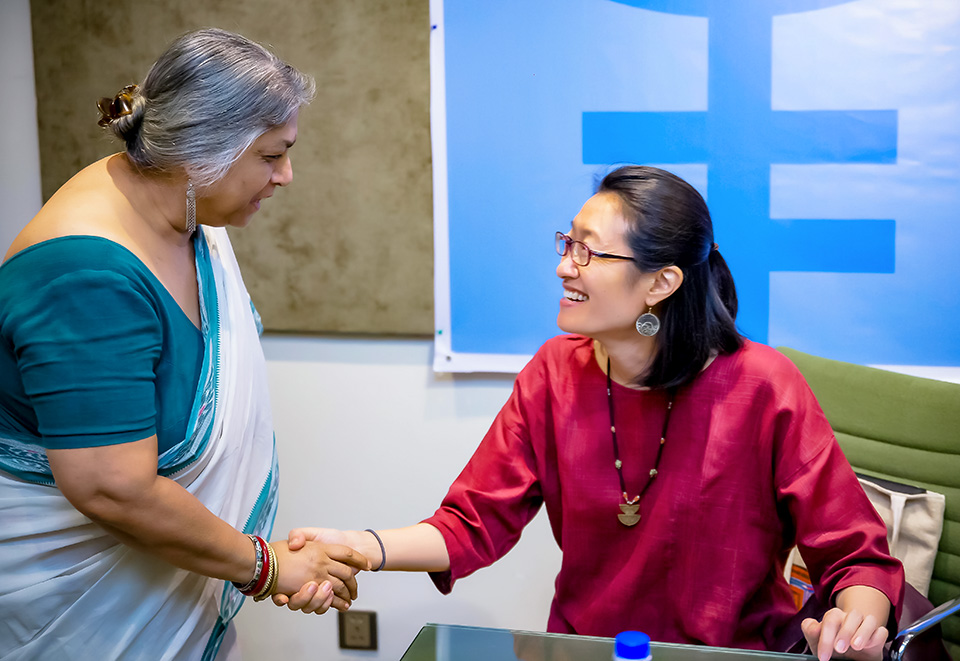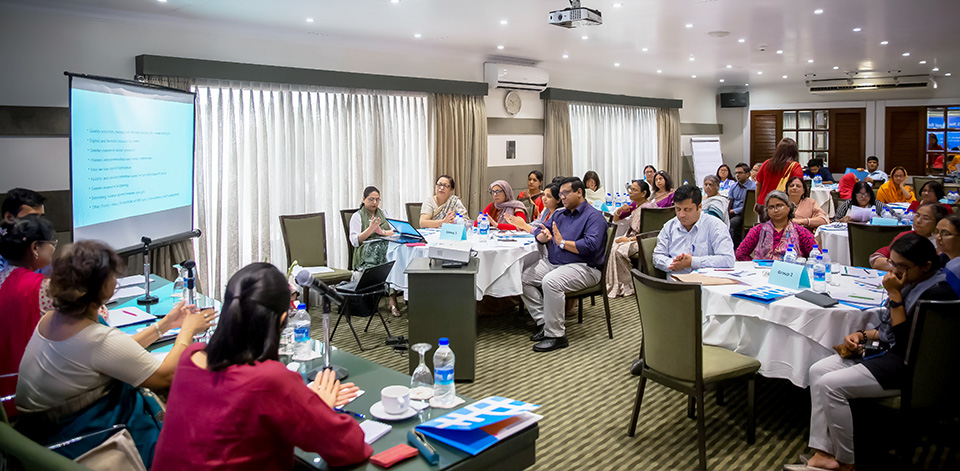Bangladesh submits assessment of progress and challenges on women’s rights
Date:
Author: Tania Sharmin
 Krishna Chanda, National Project Coordination of GIZ, an international development agency, discusses achievements and challenges over last five years at the 20 June workshop. Photo: UN Women/Sohag Ahmed
Krishna Chanda, National Project Coordination of GIZ, an international development agency, discusses achievements and challenges over last five years at the 20 June workshop. Photo: UN Women/Sohag AhmedDhaka, Bangladesh — With UN Women’s technical support, Bangladesh has completed a review of its achievements and challenges in implementing the Beijing Platform for Action.
The Beijing+25 National Review, drafted by the Ministry of Women and Children Affairs, was submitted on 22 July for inclusion in a regional consultation to be organized in November by United Nations Economic and Social Commission for Asia and the Pacific.
States are obligated to report on their progress in implementing the Beijing Platform for Action on women’s rights and empowerment, agreed on in 1995 by governments worldwide.
In Bangladesh, UN Women had helped facilitate consultations on the draft between the women’s affairs ministry and other ministries.
Then on 20 June, with UN Women’s support, a total of 20 United Nations agencies, European Union Embassies, and development and civil society organizations met with the women’s affairs ministry to discuss what they would like to be included in the draft. Participants included leading women’s empowerment groups in the country, like Bangladesh Mahila Parishad, Bangladesh Nari Progati Sangha, Naripokkho, Women with Disabilities Development Foundation, The Hunger Project, and Center for Policy Dialogue.

Shoko Ishikawa, Country Representative of UN Women Bangladesh, told that meeting: “Bangladesh is at its crossroads trying to graduate from its LDC (least developed country) status. Your critical input here today is very important to help not only the Beijing+25 review, but also (to) feed into another important process – revising the National Action Plan for Bangladesh’s National Women Development Policy.”
Participants at the discussion agreed that Bangladesh has made a lot of progress in formulating laws and policies, in improving people’s education, health and nutrition, and economic and political participation, as well as in dealing with gender-based violence. But they said that much remains to be done in improving accountability and implementing the laws and policies. They said the Government’s priorities over the next five years should include taking action on the Special Act in Child Marriage Law, Bangladesh’s reservations on CEDAW, issues of ethnic minority women and women with disabilities, rights of transgender people, and problems local communities face from the huge influx Rohingya refugees from Myanmar.

CEDAW is the United Nations Convention on the Elimination of All Forms of Discrimination against Women, adopted in 1979 by United Nations General Assembly.
“In terms of policy implementation, we have many good policies in place through the continuous struggle and work of women’s movements,” said Maleka Banu, General Secretary of Bangladesh Mahila Parishad. “When it comes to implementation, we still have much work to do.”
For example, Banu said, Bangladesh has still not withdrawn reservation of CEDAW Article 2, on changing laws and policies in order to end discrimination against women, and of Article 16(1c), on the State’s obligation to give women the same rights and responsibilities in marriage and its dissolution. And the Child Marriage Restraint Act 2017 allows child marriage to take place under special circumstances, Banu added.